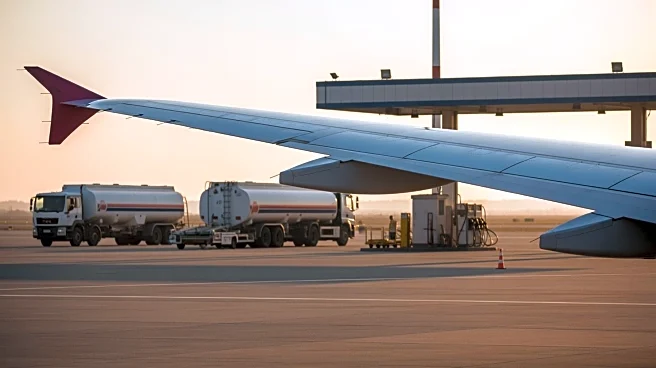What's Happening?
Evyatar David, an Israeli hostage who was forced to dig his own grave during captivity, has been released and reunited with his parents. David was one of the 20 hostages freed by Hamas as part of a cease-fire agreement that also includes the release of hundreds of Palestinian prisoners. The reunion took place more than 700 days after David was captured during a terror attack on October 7, 2023. His release was met with joy and relief, as he was seen smiling and embracing his parents, Avishai and Galia. The cease-fire agreement, brokered by the United States, aims to end ongoing hostilities and facilitate the return of hostages and deceased individuals for proper burials.
Why It's Important?
The release of Evyatar David and other hostages marks a significant step in the peace process between Israel and Hamas. The agreement, which includes the exchange of prisoners, could potentially ease tensions in the region and pave the way for further diplomatic negotiations. The involvement of the United States in brokering the deal highlights the international community's role in resolving conflicts in the Middle East. The emotional reunion of hostages with their families underscores the human impact of such agreements and the importance of addressing humanitarian concerns in conflict resolution.
What's Next?
The cease-fire agreement is expected to lead to further negotiations between Israel and Hamas, with the possibility of additional prisoner exchanges and peace talks. The international community, including the United States, may continue to play a role in facilitating dialogue and ensuring the implementation of the agreement. The focus will likely be on maintaining stability in the region and preventing future hostilities. Stakeholders, including political leaders and civil society groups, may advocate for continued diplomatic efforts to achieve lasting peace.
Beyond the Headlines
The release of hostages and the cease-fire agreement may have broader implications for regional politics and international relations. It could influence the dynamics between Israel and neighboring countries, as well as impact global perceptions of the conflict. The agreement may also raise ethical questions about the treatment of hostages and prisoners, highlighting the need for adherence to international humanitarian laws. Long-term shifts in regional alliances and power structures could emerge as a result of ongoing peace efforts.









